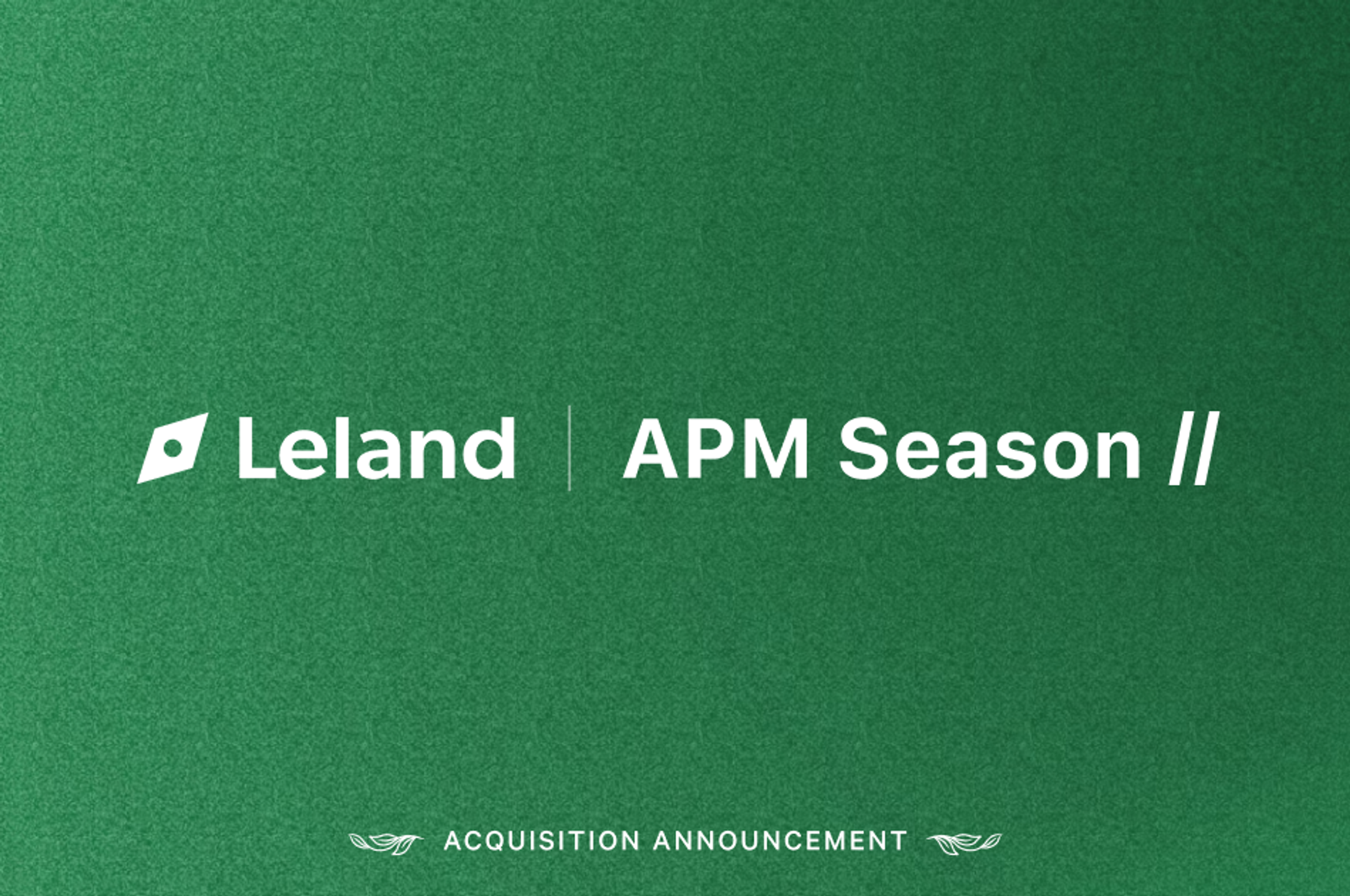How Long Does It Take to Hear Back from a Job? What to Expect and What to Do Next
Wondering how long it takes to hear back from a job? Learn what to expect after applying or interviewing, what delays mean, and what to do while you wait – plus expert tips on following up and keeping your job search on track.
Posted July 9, 2025

Table of Contents
Waiting to hear back after submitting a job application or completing an interview can be one of the most nerve-wracking parts of the job search. Whether you're waiting on a response after the final round or just hoping your resume gets noticed, the uncertainty can feel endless. The truth is, there’s no universal timeline – how long it takes to hear back from a job can depend on many factors, including the company’s hiring process, the specific job title, and how busy the hiring manager or team is.
In this article, we’ll break down the typical (though not universal!) timelines you can expect at different stages of the hiring process, explain common reasons for delays, and offer actionable tips on what to do while you wait. Whether you’re applying through job boards or working with recruiters, you’ll get clarity on what’s normal so you can move forward professionally.
How Long Does It Usually Take to Hear Back from a Job?
There’s no one-size-fits-all answer, but most candidates can expect to hear back within a few days to a few weeks, depending on where they are in the process. If you’re just submitting your resume, the wait time is generally longer than if you’ve already had a job interview.
Applications submitted through job boards tend to take longer to receive a response compared to direct applications through a company’s website or a referral. That’s because job boards often receive a high volume of applicants, which can slow down the hiring team’s ability to sort through resumes and contact candidates.
The job title also plays a role. Entry-level positions typically have faster turnaround times because they’re often easier to fill and require less internal coordination. In contrast, senior roles involve more scrutiny, more interviews, and more decision-makers, which can extend the timeline significantly.
General benchmarks to keep in mind
- After applying: Most employers respond within 1–2 weeks, especially if the role is actively being filled.
- After a first interview: You’ll usually hear back within 3–7 business days, though some companies may take a bit longer depending on the number of candidates they’re interviewing.
- After a final interview: A decision typically comes within 1–2 weeks, though it may be delayed by background checks, drug tests, or internal approvals from HR and the hiring manager.
While these timeframes are helpful, it’s important to remember that every company and hiring process is different. Sometimes, even highly qualified candidates can be left waiting longer than expected.
What Affects How Long It Takes to Hear Back?
Several behind-the-scenes factors can influence how long it takes to hear back from a job, even if you’re a strong candidate. Understanding these variables can help you manage expectations and stay patient during the process.
Company size
The size and structure of the company matter. Startups or small businesses may move quickly because they have fewer layers of approval. Larger companies, on the other hand, often have more formalized hiring processes, which can involve multiple stakeholders, departments, and steps that slow things down.
Hiring manager bandwidth
The availability of the hiring manager is another key factor. If they’re traveling, managing multiple openings, or juggling competing priorities, it may take longer for them to review applications or schedule the next steps. The same goes for the hiring team – even if everyone’s excited about your profile, internal timelines don’t always allow for a fast decision.
Volume of job applications
Popular job titles or roles posted on major job boards can attract hundreds of resumes. Even with resume screening tools, it can take time to filter through applicants and move candidates forward.
Internal timelines and decision-making
In some cases, delays are due to internal decisions – for example, if the team is still debating between candidates or reassessing what they need in a new hire. Company culture also plays a role: some organizations prioritize fast hiring, while others value a more methodical, consensus-driven process.
Once you reach the later stages, steps like background checks, drug tests, and final sign-off from human resources can further extend the timeline. And if the company decides to schedule more interviews or an unexpected final round, that too can push things back.
Timelines also vary by industry. For example, tech startups might move faster than law firms, hospitals, or government agencies, where hiring often requires stricter protocols and more approvals.
Even if you feel confident after an interview, there are many moving parts that affect how quickly you’ll get an answer, most of which are completely out of your control.
When Should You Follow Up (and How)?
Knowing when and how to follow up after a job application or interview can be tricky—but it’s also a chance to show continued interest and professionalism. The key is timing: you want to stay on the employer’s radar without seeming impatient or pushy.
After your interview: If you’ve had a job interview, the best time to send a follow-up email is 5–7 business days later. This gives the hiring manager and interviewers time to debrief, speak with other candidates, and move the hiring process forward. If you haven’t heard anything by then, a polite message expressing your enthusiasm and asking about next steps is perfectly appropriate.
Without an interview: If you haven’t interviewed yet and are waiting to hear back after applying, wait about 2 weeks before following up—especially if the job was posted recently or through a job board with a high volume of applications. Some hiring teams won’t begin reviewing applications until the posting has closed.
What to Say in a Follow-Up Email
Your message should be short, polite, and focused on your continued interest in the role. Here’s what to include:
- A brief reminder of who you are and the job title you applied or interviewed for
- A sentence expressing continued interest in the position and the company
- A respectful ask for an update on your application or the next steps in the process
- A note thanking them for their time and consideration
Example Follow-Up Email
Subject: Following Up on [Job Title] Interview
Hi [Hiring Manager's Name],
I hope you're well. I wanted to thank you again for the opportunity to interview for the [Job Title] position last [day]. I really enjoyed learning more about the role and your team, and I'm very excited about the opportunity to contribute to [Company].
I wanted to follow up to see if there were any updates regarding next steps in the hiring process. Please don’t hesitate to let me know if there’s anything else I can provide.
Thank you again for your time and consideration.
Best, [Your Name]
Stay Professional Without Seeming Pushy
Tone matters. Keep your message upbeat, respectful, and free from pressure. Avoid asking “Why haven’t I heard back?” and instead focus on your enthusiasm for the role. One well-written follow-up is enough – don’t send multiple emails if you haven’t received a response within a few days.
When It’s Too Soon (or Too Late) to Follow Up
Reaching out within 48 hours of applying or interviewing is usually too soon, unless you’re sending a thank-you note. On the flip side, if you wait more than a month, the role may already be filled, or the hiring team may assume you’ve moved on. In general, a single follow-up sent at the right time helps show that you’re both professional and genuinely interested in the position.
Is It a Good Sign If You Haven’t Heard Back Yet?
Not hearing back after a job interview or after submitting your application can feel discouraging. But silence doesn’t always mean rejection. In some cases, it may actually be a neutral or even positive sign that you’re still under serious consideration.
Sometimes, no news means you're still in the running. If the hiring manager or hiring team is taking extra time, they may be coordinating with multiple decision-makers, waiting for final budget approval, or completing interviews with other candidates before making a decision. Delays can also happen due to scheduling conflicts, vacations, or internal shifts, none of which reflect negatively on your candidacy. Especially after a final round, it’s not uncommon to wait a bit longer while the team determines who to move forward with.
That said, there are times when silence isn’t a good sign. If it’s been several weeks with no communication, and you’ve sent a follow-up email without a response, it may indicate that the company has moved on without officially closing the loop. Vague replies like “we’ll be in touch soon” with no follow-up can also signal uncertainty or that you’re not a top choice.
It’s also worth understanding the difference between being kept warm for a firm offer and being quietly placed on hold. In some cases, you may be a backup candidate if their first choice doesn’t accept the job offer. If they’re keeping in touch but moving slowly, that could be a sign you’re still a contender. But if communication stops completely, especially after a promising interview, it may be time to refocus your energy on other opportunities.
Ultimately, while it’s natural to wait to hear back, the best move is to stay proactive with your job search, continue applying to other jobs, and remain open to the right opportunity – whether it comes from this potential employer or the next.
Next Steps: What to Do While You Wait to Hear Back
Waiting to hear back from a potential employer can feel like a standstill, but it doesn’t have to be. The best thing you can do during this time is to stay proactive and keep your job search moving forward.
Don’t put your job search on hold
First and foremost, keep applying to other jobs. Even if you feel confident after an interview, it’s risky to put all your hopes into one role. Until you receive a firm offer, it’s smart to explore other opportunities. Applying to multiple positions also gives you leverage and increases your chances of landing a great fit.
Use this time to polish your resume, refine your application materials, and prepare for future interviews. Review feedback (if available), reflect on how your last conversations went, and practice common interview questions to strengthen your performance for the next round.
You should also continue to network and connect with recruiters. Let people in your professional circle know you’re actively looking – referrals and insider connections can often speed up the hiring process and lead to interviews you might not find through job boards alone.
Further research the company you’re waiting on
Take a step back and re-evaluate the company culture and role fit of the job you're waiting on. Revisit the job description and your interview notes to confirm it still aligns with your skills, values, and long-term goals. Sometimes the wait gives you clarity on whether it’s the right move.
Above all, focus on maintaining momentum. A delayed response doesn’t mean rejection, but it also shouldn’t slow down your job search. Keep showing up, stay organized, and keep moving forward. You’ll be ready when the right opportunity comes through.
What Happens Behind the Scenes in the Hiring Process?
It’s easy to feel left in the dark while you’re waiting to hear back, but there’s often a lot going on behind the scenes after you submit your application or finish an interview. Understanding the internal steps a potential employer takes can help explain why things sometimes stall, even if you’re a top candidate.
| Steps On The Hiring Side | Description |
|---|---|
| Hiring Team Reviews Application Materials | These include your resume and cover letter. If you applied through a job board, your application might first go through an applicant tracking system (ATS) before a human ever sees it. |
| Scheduling Interviews | There may be several rounds of interviews: phone screens, technical assessments, behavioral interviews, and possibly a final round. Coordinating calendars for the interviewers, hiring manager, and candidates often takes longer than expected, especially at larger companies or during busy hiring seasons. |
| Interviewers Debrief | After each round, interviewers usually meet for a debrief to discuss how each candidate performed. These conversations can include multiple people across teams and levels, and consensus isn’t always easy to reach. If there’s disagreement or uncertainty, the team might decide to conduct more interviews or compare notes with other candidates still in process. |
| Approval Process | Once a decision is made, the approval process begins. This can involve getting sign-off from department heads, finance teams, or HR, especially for roles requiring relocation, visa sponsorship, or exceptions to compensation bands. If background checks or drug tests are part of the process, those steps also add time. |
Any of these points – whether it's internal debate, scheduling delays, or waiting for final approvals – can cause gaps in communication. So while you’re waiting to hear back, it’s often not a matter of disinterest, but rather the complex and often slow-moving machine of the hiring process at work.
When to Move On With Your Job Search
At a certain point, waiting for a response can start to feel less like patience and more like wasted time. So, how do you know when it’s time to move on?
As a general rule, if it’s been more than two weeks after a final interview and you haven’t received any kind of update – even after sending a polite follow-up email – it may be a sign that the company has shifted its focus elsewhere. While delays happen, long periods of silence often mean the position has either been filled or put on hold.
Other signs that it might be time to let go:
- You’ve sent a final follow-up and received no response
- The hiring manager or recruiter gives vague, noncommittal updates (“we’ll be in touch soon”)
- The job listing has been taken down without notice
- You see the same job title reposted under a different listing
- The hiring team stops engaging with you after earlier enthusiasm
If you’ve hit this point, don’t take it personally: it’s often a reflection of internal changes, shifting budgets, or indecision on the company’s end, not your qualifications.
Here’s how to keep your job search pipeline full and stay motivated:
- Keep applying to other jobs, even while you’re interviewing
- Track applications and follow-ups in a simple spreadsheet to stay organized
- Celebrate small wins, like landing interviews or making it to the final round
- Continue networking and building relationships with recruiters
- Revisit your resume and prep materials to sharpen your edge
Letting go of one opportunity can be tough, especially if it felt like a strong fit, but sometimes that space is exactly what you need to find something even better. Stay active, stay focused, and trust that the right job offer is still ahead.
Stay Confident and Keep Moving Forward
Waiting to hear back after a job application or interview can be stressful—but remember, delays don’t always mean rejection. The hiring process is often more complex and slower than it appears from the outside, and many strong candidates end up waiting longer than expected for a decision.
The key is to stay focused. Follow up professionally, continue applying to other jobs, and maintain confidence in your abilities. If a potential employer doesn’t get back to you, it’s not a reflection of your worth: it’s a sign to keep looking for a company that sees and values your skills and experience.
You’ve already put in the work. Now, stay in motion. Your next opportunity might be just around the corner.
Work With a Leland Career Coach & Land Your Dream Job Offer
You don’t have to navigate the job search alone. Whether you're waiting to hear back from interviews, refining your resume, or preparing for your next big opportunity, a Leland career coach can help you move forward with clarity and confidence.
Our expert coaches have experience across industries – from tech and finance to healthcare and consulting – and many have worked as hiring managers themselves. Browse top career coaches or get matched by a Leland advisor personalized, tactical support on everything from interview prep and application strategy to negotiating job offers and choosing the right company fit.
Don't leave your career growth to chance. Work with a coach who knows what it takes to help you get hired.
Read:
- How to Nail “Tell Me About a Time…” Interview Questions
- An Expert’s Guide to Resumes: Five Tips to Make You Stand Out
- How to Write the Best Follow-Up Email After the Interview (With Examples & Template)
- 10 Job-Ready Career Skills That Will Set You Apart
- Coffee Chat – What it Is & How to Make the Most of It
How Long Does It Take To Hear Back From a Job – FAQs
How can I tell if an interview went well?
- Signs that your interview went well include strong rapport with the interviewer, a conversation that felt natural and engaging, detailed questions about your skills and experience, and discussion of next steps or timelines. If the interviewer seemed genuinely interested, shared more about the company culture, or introduced you to other team members, those are also good signs.
How to tell if an interview went badly?
- If the interviewer seemed disengaged, rushed the conversation, or didn’t ask many follow-up questions, it may be a red flag. Other signs include vague answers about next steps, no opportunity to ask your own questions, or a noticeably short interview with little detail covered. That said, some interviews feel “off” even when they go well, so try not to overanalyze.
How long does it take to get hired after an interview?
- The full timeline from interview to job offer can range from a few days to several weeks, depending on the company’s hiring process, the number of candidates, and factors like background checks or final approvals. On average, if you’re a top candidate, you can expect to hear back within 3–14 days after your final interview.
Is a 30-minute interview good?
- Yes, a 30-minute interview can be a good sign, especially for early-stage interviews or phone screens. If the conversation was focused, covered key questions, and ended with a clear discussion of next steps, that’s a positive outcome. However, if it felt rushed or surface-level, it could suggest limited interest.











